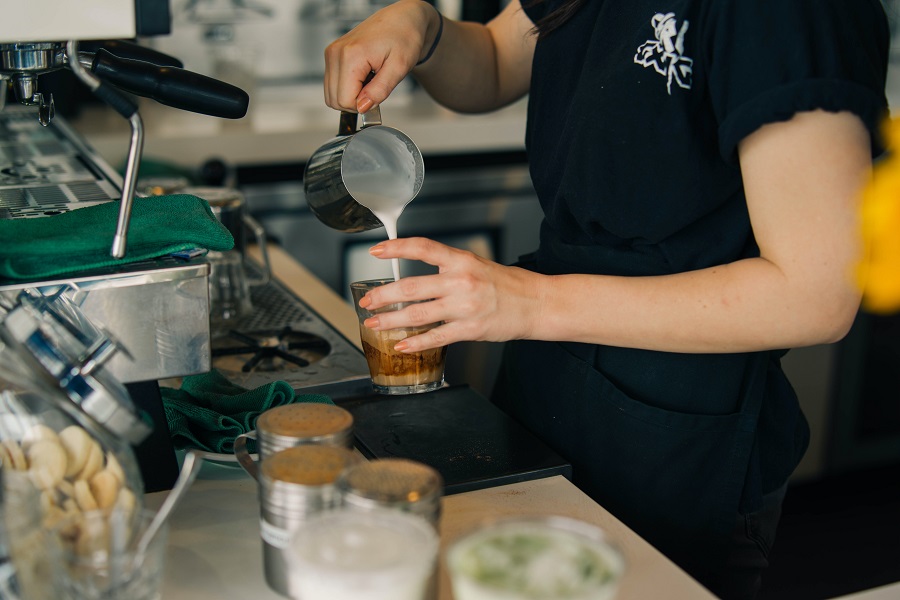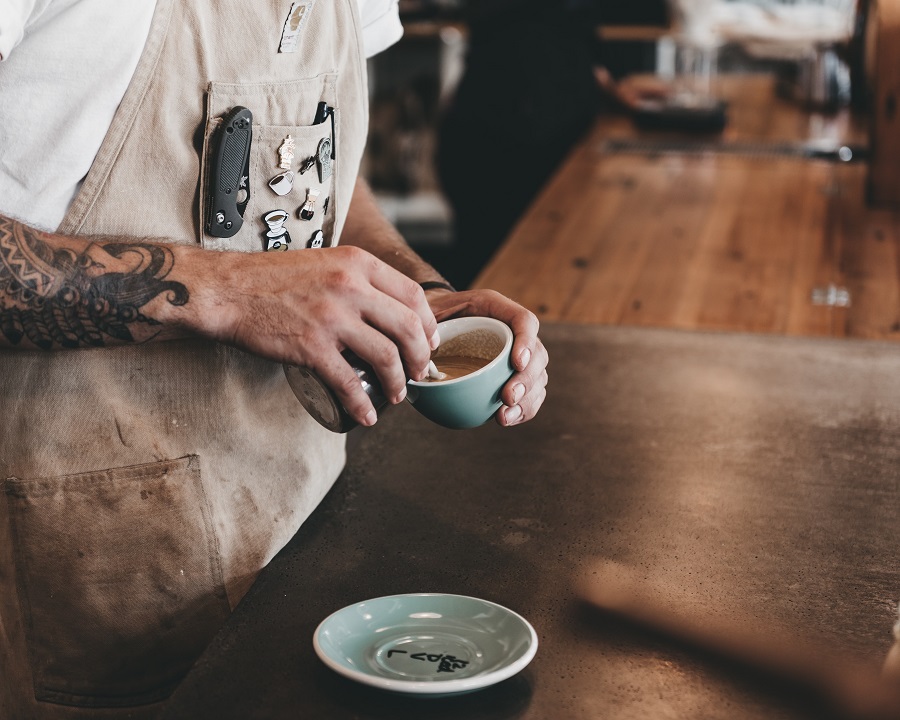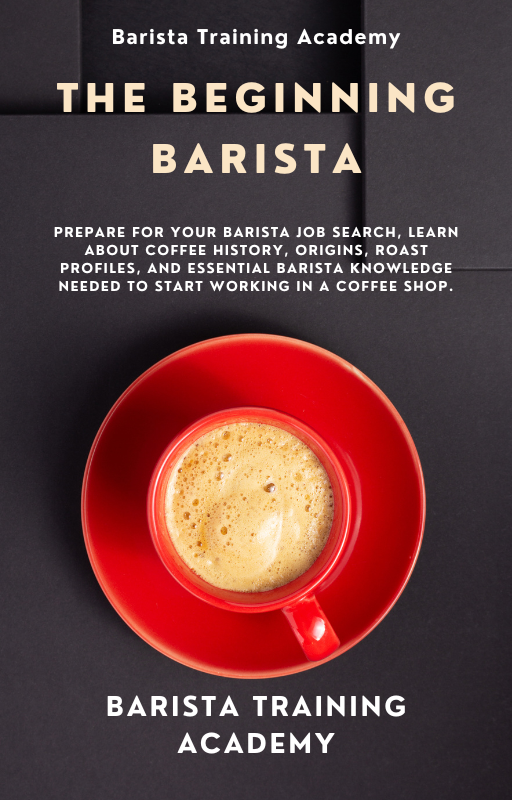How to Become a Barista and Learn About Coffee
Coffee can open up a whole new world for many people looking to explore this topic – from roasting, becoming a coffee Q grader, to being a barista.
There are a variety of coffee jobs and coffee careers that can propel you to explore the world in a way that no other industry can. For many, entering the coffee industry can take the form of working in retail, specifically at a coffee shop, café, or restaurant.
In fact, with the skills and knowledge that you are sure to acquire along the way, you may be interested in starting a coffee shop one day.
In today’s post, we’ll look at different ways to become a barista and how you can learn more about coffee.
Barista Jobs Can Vary
The responsibilities of a barista can vary from location to location. So while you might have the idea that all baristas are those typical employees that work at big coffee chains, it’s not always the case.
Depending on the coffee spot you work at, you might have a variety of job duties to perform. As you can imagine, working at a burger joint that serves coffee too will be very different from working at a high-end specialty coffee shop.
As a barista, of course, one responsibility will be to make coffee beverages. This could mean espresso-based drinks, coffee pour-overs, smoothies, and teas. Of course, your job may also require you to serve alcohol, such as mixed drinks, wine, and beer.
Depending on your employer, you will likely be asked to prepare food – from light snacks to full meals.
Other jobs include light custodial work, inventory management, and social media.
If you decide to work at an independent coffee shop, you may be asked to do various non-coffee-making things. For example, you may need to go shopping, clean the seating area, take out the trash, and wash dishes, among several other specific duties.
Additional reading: Fastest Way to Be a Barista With No Experience
Why Become a Barista?
Being a barista can allow you to work in pretty much any city in the world. In any urban or metropolitan city, you’ll be able to find work serving coffee in any number of cafés or food establishments.
And over the last few years, wages and tips have grown, boosting the hourly wages of the average barista in the U.S., Canada, and elsewhere. In addition, the steep competition for great baristas has some independent coffee shops offering perks and bonuses.
If you love coffee, why not turn it into a profitable job? Starting as a barista opens up excellent job prospects – even starting your coffee shop one day. This is one of the possible opportunities for a barista trainer, coffee roaster, coffee consultant, or coffee buyer.
Barista benefits include:
- Easy to find a job
- Ability to make good tips (boosting your hourly wage)
- Flexible hours
- Additional perks and bonuses
- Career growth opportunities
In addition, many corporate coffee chains and some independent chains are also increasingly adding health insurance coverage, dental coverage, and other benefits such as paid college. Career opportunities can even include setting up and starting a coffee truck business or other retail business.

On Becoming a Barista
There are many different ways to learn how to be a barista. You can get on-the-job training, take an in-person course, or take an online barista training class.
Before you start looking for your best option, it’s essential to understand what coffee shop owners and managers want from the baristas they hire.
In essence, coffee shop owners want reliable and honest people willing to learn and good at working with people.
Coffee shop owners want:
- Reliability
- Honesty
- People skills
- Ability to work well with others
- Ability to learn
Did you notice something missing from this list?
Experience.
While experience is a good thing on a barista resume, it is certainly not everything. In fact, 95% of the time, a coffee shop owner will choose honesty and reliability over experience.
The other 5% often regret their hiring decision.
The fact is that most coffee shop owners want responsible adults who can be reliable and have good communication skills. All of whom work to maintain a safe and comfortable work environment for everyone.
Of course, it would be beneficial to learn some barista skills and be somewhat knowledgeable about coffee and its variety of flavor profiles to perform your duties. This knowledge will help you develop your craft and serve incredible drinks.
For more information, please read our post, Requirements to Becoming a Barista.

What Should You Know As a Barista
Successful baristas should have extended coffee knowledge, understand the nuances of coffee profiles, and know how to extract the best coffee with the beans they work with.
A barista should be familiar with:
- Coffee flavor profiles
- How to grind and tamp coffee
- Extract espresso by dialing-in
- Know how to steam coffee correctly
- Build drinks
- Basics of serving coffee
These are the fundamentals. If you wish to perfect your latte art, develop your own signature coffee drinks or become a roaster or coffee taster, you’ll need a little more practice.
How to Become a Barista
So how do you become a barista? There are a variety of options you do have. These include getting one-on-one training, being trained by your employer, or taking a barista class (offline and online).
Each of these has its pros and cons. For example, a one-on-one trainer can be expensive, costing you hundreds of dollars. However, you will get a personalized approach. An online barista guide will be the cheapest option, but you won’t have an opportunity to ask questions.
Being trained by your employer or a coffee roaster might be good. In either case, it’s helpful to have some understanding of coffee and barista terminology before you start your first job.
Additionally, while coffee shop owners and managers want a personable and reliable employee, they may also be looking for those with general knowledge about coffee. Therefore, even if the barista job candidate has never had a barista job, a coffee shop owner does like job candidates who have shown interest and a passion for coffee.
How to get barista training:
- On-the-job training
- One-on-one barista training
- Barista training class (group)
- Online barista training
It is important to note that legally, there is no governing body under the direction of any state statute that you need a state license or certification to be a barista. This is true for other jobs, including barbers, real estate appraisers, and massage therapists.
Interviews
When you apply for a job as a barista, you'll likely get a barista job interview. To have a successful barista interview, you'll want to follow these steps that we've outlined in our post, Interviewing to be a Barista.
How can you learn about coffee without being a barista?
You will find many people who love coffee and just love to learn about the various aspects that coffee brings to the table. Like wine, cheese, tequila, steak, or any other culinary specialty, you will find both professionals and amateur enthusiasts looking to increase their knowledge and experience with the food and beverages they love.
First, they get out and explore.
By exploring coffee shops and visiting with coffee roasters, attending coffee cuppings, and roasting, you’ll begin to expand your knowledge and your palate. Additionally, you can attend coffee seminars, festivals, and conventions.
In addition, there are a variety of books, magazines, blogs, podcasts, and social media accounts that geek out on coffee, coffee roasting, extracting, etc.
Note that reading books or articles – no matter how professional they are – probably won’t give you any skills. You may need to find yourself behind a coffee bar to understand what it means to grind coffee and lock a portafilter. But learning and understanding specific information will help you be a better barista.
Would you like to learn more about being a barista and coffee?
If you are serious about starting your barista career, then be proactive! There’s a lot of information you can find about coffee – both online and offline. Being really curious about coffee will make you a great barista. But knowledge is only good if you can apply it. Coffee is a unique product that needs to be tasted, enjoyed, and described. That’s why it’s a good idea that you attend coffee events, expos, and cuppings.
Explore our barista training blog if you would like to learn more about coffee, topics on barista skills, and barista job-related issues.
